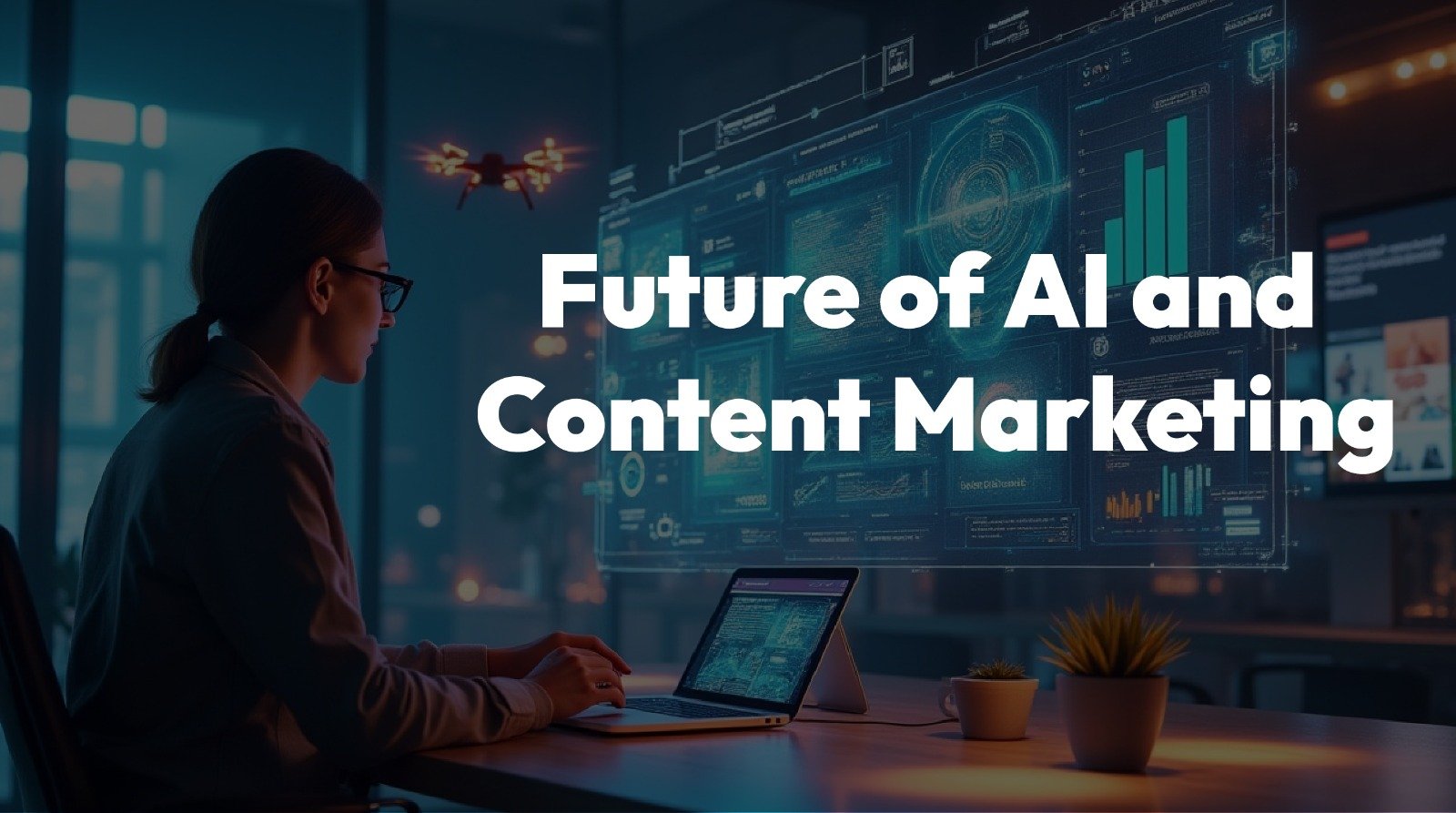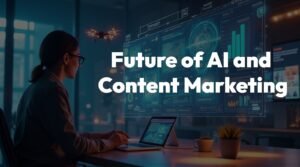Artificial intelligence has become an inseparable part of digital marketing. There is an evolution in the way brands can communicate with consumers, thanks to the use of predictive analytics, automated content creation, and other AI-driven tools. The discussion below considers how AI will transform the future of content marketing and what measures marketers will need to take in preparation.
So, what is AI in content marketing?
In content marketing, artificial intelligence refers to the use of machine learning, natural language processing (NLP), and data-driven algorithms to automate, analyze, and optimize marketing-related content. This technology enables marketers to come up with even more touching, personalized, and effective content strategies
Current Use Cases of AI in Content Marketing
Artificial intelligence has already transformed the way digital content is produced. Some of the most common applications are the following:
- The production of content through systems including ChatGPT, Jasper, and Copy.ai.
- Content creation, through which appropriate articles are proposed through algorithmic data patterns.
- Customer support or user engagement chatbots.
- Predictive analytics: Predicting trends and user behavior.
- Optimizing the search intent and ranking factors with the help of SEO.
How AI is Transforming Content Creation
AI tools can write blogs, product descriptions, email campaigns, and even video scripts within seconds. This doesn’t just save time—it enhances creativity and consistency. Content creators can now focus more on strategy while AI handles
repetitive tasks
Benefits of AI in Content Creation
- Reduced time and effort
- Improved consistency
- Scalable output
- Enhanced audience targeting
The Role of AI in Personalization and Targeting
AI analyzes user data to personalize content experiences. From email marketing to social media ads, AI helps tailor content that aligns with individual user preferences, location, behavior, and search history.
Examples:
- Netflix’s content suggestions
- Amazon’s personalized product recommendations
- Dynamic landing pages based on user intent
Content Strategy and AI-Powered Analytics
AI tools like Google Analytics 4, MarketMuse, and SEMrush help marketers understand content performance in real time. With machine learning, businesses can predict what type of content will work best for specific customer segments.
Strategic Advantages:
- Keyword forecasting
- ROI measurement
- A/B testing automation
- Audience segmentation
The Future Trends of AI in Content Marketing
As AI technology evolves, here are the key trends expected in the next 3–5 years:
1. Hyper-personalization
Content will be created for “segments of one” using real-time data.
2. Voice and Visual Content Dominance
AI will boost voice search optimization and generate visual content automatically.
3. Conversational AI Integration
AI chatbots will evolve into virtual brand assistants with human-like capabilities.
4. Predictive Content Creation
AI will forecast what topics are most likely to go viral.
5. AI + Human Hybrid Teams
The future is not human vs. AI but human + AI collaboration.
Challenges and Ethical Concerns
Despite the benefits, marketers must be aware of ethical risks:
1. Content Authenticity
AI-generated content may lack originality and emotion.
2. Data Privacy
AI relies heavily on personal data, raising concerns over GDPR and other laws.
3. Algorithmic Bias
Biased training data can lead to unfair content targeting or misinformation.
Solution: Marketers must maintain a balance between automation and human oversight.
Most Asked FAQs
1. Can AI replace human content writers?
Not completely. AI can assist in drafting and editing, but human creativity, emotion, and strategy are irreplaceable.
2. Is AI-generated content SEO-friendly?
Yes, if used properly. Many AI tools are built with SEO best practices in mind.
3. What are the best AI tools for content marketing?
Popular tools include ChatGPT, Jasper, Grammarly, Surfer SEO, and Copy.ai.






